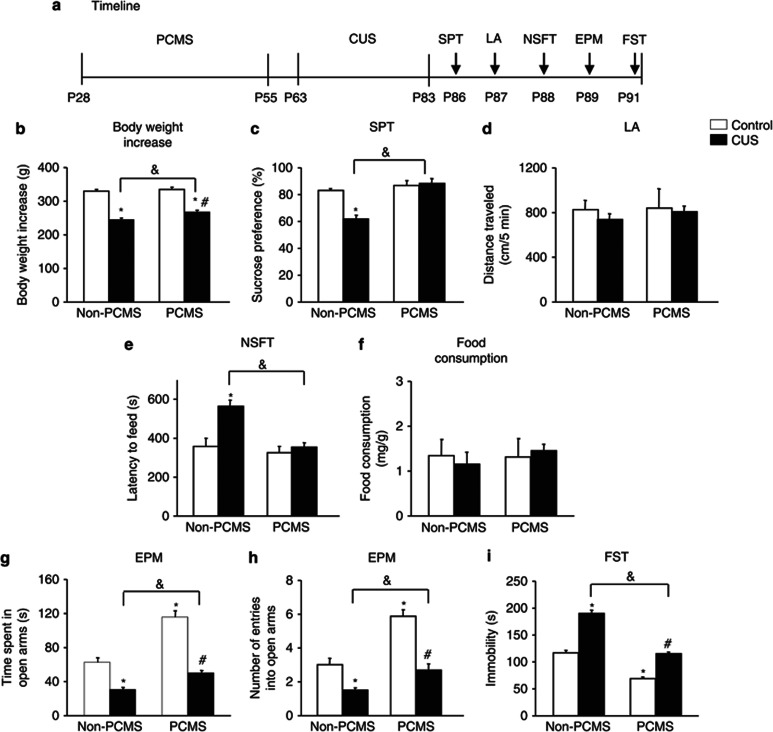Figure 7.
Predictable chronic mild stress (PCMS) during adolescence resisted chronic unpredictable stress (CUS)-induced depressive- and anxiety-like behavior in adulthood. (a) Schematic of the timeline for PCMS and CUS exposure and the behavioral tests. All of the behavioral tests were separated by 1 day and conducted sequentially after stress exposure. We assessed the effects of PCMS and CUS on (b) body weight gain, (c) depressive-like behavior in the sucrose preference test (SPT), (d) locomotor activity, (e, f) anxiety-like behavior in the novelty-suppressed feeding test (NSFT), reflected by the latency to feed and food consumption during 5 min in the home cages, (g, h) anxiety-like behavior in the elevated plus maze (EPM), and (i) depressive-like behavior in the forced swim test (FST). The data are expressed as mean±SEM (n=9-10 per group). *p<0.05, compared with the control group; #p<0.05, PCMS+CUS group compared with PCMS+control group; &p<0.05, PCMS+CUS group compared with the CUS group. LA, locomotor activity.

